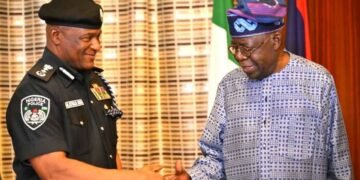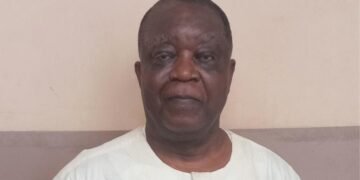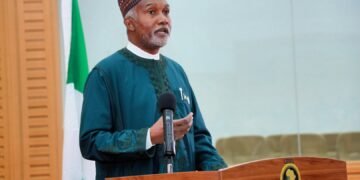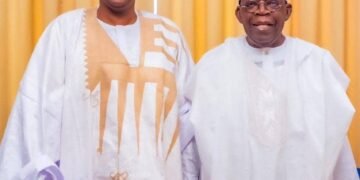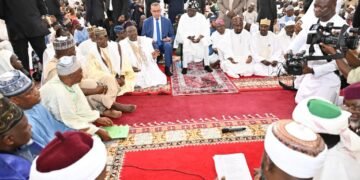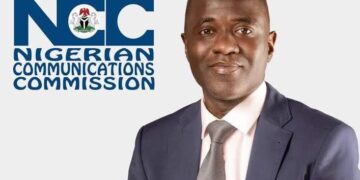By Dapo Okubanjo
It’s one year after what was said to be a protest against Police brutality in the country that later took a turn for the worse after claims that a detachment of soldiers sent to the Lekki Toll Gate in Lagos to enforce a curfew committed a massacre by shooting into the crowd of protesters on the night of October 20 2020.
One can easily recall that nearby shopping malls in the upscale part of Lagos were the first targets though some of the dramatis personae prefer to blame it on hoodlums, it was clear that the looting spree and the orgy of destruction across the State were in the aftermath of what was alleged to be a massacre of unharmed protesters in Lagos from where it spread to at least 13 States and the FCT.
In the midst of the descent to anarchy, the army formation at Bonny Camp in Victoria Island where the soldiers took off from had insisted that live rounds were not used on the crowd, and even Governor Babajide Sanwo-Olu was at pains to wash his hands off what soon caught global attention through the Lekki Massacre hashtag that was the top trend for weeks.
But many people were not impressed by the massacre claim and pushed back by arguing that what the protesters and their supporters relied on was a sole live broadcast on Instagram by DJ Switch who made several outlandish allegations including that she dumped bodies at the foot of soldiers!
President Muhammadu Buhari had to make a nationwide broadcast during which he acknowledged the demand of the protesters for an end to the notorious police unit and promised to scrap it, but that did not deter the protesters who by then had been infiltrated by political operatives
And by the time the dust settled, Lagos, which was the epicentre of the protest alone suffered an economic loss estimated to be in the range of N1.5 trn by an advisory firm, Financial Derivatives based on the magnitude of the havoc wreaked on public and private property many of which have not been repaired or rehabilitated more than one year after the protest against the now disbanded Special Anti Robbery Squad. (SARS).
Small businesses were the most affected by the outbreak of violence with one data company SBM Intelligence suggesting that almost one in three businesses in the country’s commercial nerve centre lost between N500,000 and N1,000,000. It should be noted that no fewer than four major shopping malls with hundreds of shops looking like a hurricane had gone through them at a time that coronavirus was having a major impact on Africa’s biggest economy
In response to its vow to come to the aid of those who suffered losses, the government has had to provide support totaling N939m to over 10,000 small business owners. Also, Insurance companies in the country have in the last one year paid out claims totaling N9bn to different customers whose businesses were interrupted either through outright looting or vandalism.
All these notwithstanding, private sector operators are still lamenting heavily that many of their colleagues are still struggling to cope with the loss of hundreds of millions of naira in business inventory.
But perhaps, the biggest losers is the Lagos State Government and this is not even a shock because its domain was the epicentre of one of the biggest protests in the country in recent times. Aside from twobof its bus terminals which were firebombed, VIO and FRSC offices were almost totally destroyed
An official document released by the government after a damage analysis shows that a total of 80 mass transit buses known as BRT were destroyed. This is made up of 23 big buses and 57 medium sized ones when the two bus terminals were fire bombed. Each of the big buses is said to cost $200,000 while the smaller ones are estimated at $100,000.
One year after, Lagos has yet to replace those buses and there is no way that the impact would not be felt in the over stretched public transportation sector in the nation’s commercial centre.
It is however interesting to note that while the federal government is insisting that it has done a lot since that dark day in October to accede to the request of the protesters, many people, especially opposition figures, have said nothing has changed.
This is even after the National Economic Council (NEC) has given very clear indications of what the President Muhammadu Buhari administration had done in response to the grievances of the protesters. These include the disbandment of SARS, broad Police reforms, establishment of judicial panels to investigate allegation of police brutality at state levels, setting up of victim compensation funds and prosecution of erring policemen indicted by the panel
But few days after the meeting where these facts were reeled out, it is quite disturbing to read and in some cases listen to people saying nothing has changed when even before the panel in Lagos wrapped up its sitting, cheques were handed over to victims of police brutality dating back to ten years ago.
Besides, the government cannot be accused of paying lip service to Police reforms because even before the protest, the Police Trust Fund was put in place on the basis of a 2019 act and not quite five months after the protest, the National Assembly approved N75bn for procurement of state of the art equipment as well as training and re-training of Police personnel.
So it is uncharitable for certain opposition figures to say that nothing has been done to address issues thrown up by the EndSARS protest unless there are other things those politicians actually wanted to see in its aftermath.


